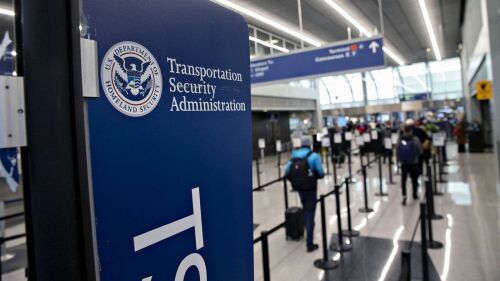Deobandi-led Protestors Outside Batley Grammar School |
As schools in the United Kingdom recover from the year-long disruption caused by COVID-19, a small grammar school in the west Yorkshire town of Batley has been catapulted into national and international headlines. On Thursday, March 25, pickets closed Batley Grammar School after Muslim campaigners descended on the school protesting a teacher accused of showing caricatures of Muhammad.
There is some inconsistency in reports as to whether these images were from Charlie Hebdo or whether the image in question was the depiction of Muhammad with a bomb in his turban that formed part of the 2006 Danish cartoons controversy. Either way, posts on social media encouraged protesters to attend the school to demand the teacher’s resignation “as an absolute minimum” and declared that attendance was a religious duty to defend the “honour” of the prophet. The school and surrounding roads were closed, and a large group of men, primarily in their 20s — many of them too young to be parents of schoolchildren — milled about. There were noticeably very few women.
Britain has been here before. The attempt to enforce Islamic norms and regulations in public life in the West was born out of the 1989 book burnings and protests against Salman Rushdie’s novel The Satanic Verses. Europe has suffered periodic crises over Islamic blasphemy codes ever since, even though there is currently no offense of blasphemy in English law.
A noticeable characteristic in the Batley protests has been the presence of followers of the Deobandi school of Islam. In 1988, Deobandis were behind the first British protests against Salman Rushdie. Batley is in the West Yorkshire borough of Kirklees, an area of strong Deobandi representation, particularly in Dewsbury and Batley.
Knowledge of Deobandism in the UK is generally low, even among those busy in the contentious fields of counter-extremism and counter-radicalization. Focus has been far greater on Salafism due to its association with Osama bin Laden and Al-Qaeda and its appeal to “born-again” Muslims searching for authenticity. A second source of concentration has been on the Muslim Brotherhood because of its comparative political success.
In numerical terms, though, and certainly in the British context, Deobandism matters far more. A 2017 report by the Muslims in Britain directory estimated 41 percent of the UK’s mosques were Deobandi — that is 797 out of 1934 institutions. And that figure — for one of the most conservative stripes of Islam — was rising. In Batley, a crash course in the ethics of Deobandism is currently available through local Imam Mohammed Amin Pandor.
Pandor has been central to the protest at the grammar school. He entered the school freely (despite the country’s lockdown restrictions), meeting with teachers, and delivered his analysis from the school gates to other protesters and the media. At one point he claimed to have been involved in drafting the statement issued by Batley Grammar that ensured changes. This was followed by the school’s statement that it “unequivocally apologises for using a totally inappropriate resource” and had suspended the teacher who showed the image.
At the school gates, Pandor commented, “Look at what we do as a community, and you’ll understand our stance.” This was almost certainly a reference to the burgeoning Islamic charity sector, in the Batley area, Yorkshire, and farther afield. The charity sector is a prominent source of employment for Islamists in the UK, and charities can achieve a sense of recognition and engagement from the authorities that would not be given to secular associations or campaign groups. We now see, however, some of the downsides of this work.
During the coronavirus pandemic, for instance, one local Islamic charity named Purpose of Life provided IT equipment to Batley Grammar School. A deeper look at the Purpose of Life, however, suggests an organization that is not necessarily as benign or altruistic as it appears. It was forced to delete a letter by its CEO Mohammad Sajad Hussain, circulated online on March 25, which publicly named the teacher, described the images he showed as terrorism, and compared it to the murder of Muslims in Myanmar. That letter also declared that until the teacher was sacked “we cannot work with or promote Batley Grammar School.”
The Batley affair is also an indicator of how the balance of political forces in Britain are shifting. In 1989, majority opinion, even on the left, defended Rushdie and his right to publish. Things are very different now. The Labour MP for Batley and Spen, Tracy Brabin, managed to condemn the threats made to the teacher (who by that point had fled his house and was living under police guard) but welcomed the school’s apology. It appears that Islamic blasphemy codes, even in a secular school, are now to be respected.
Only the school’s students are campaigning to defend their teacher. Other local political figures have instead chosen to be silent. For example, the leader of Kirklees council and a Labour representative in Batley west, Shabir Pandor, has said nothing. It just so happens that he is the brother of Imam Mohammed Amin Pandor.
Trade unions have similarly said little. Earlier this year, the main teachers union, the National Education Union (NEU), donated £3000 to the Purpose of Life charity. While the NEU eventually stated it was supporting the teacher in Batley, it has said nothing on the wider issue of free speech or blasphemy codes.
For now, things may quiet down. Schools are closed for the Easter break, and the protesters have in many ways succeeded. There is, however, a clear desire by radical forces to spread the conflict. In a statement to the media, protesters called for a probe into other teachers at Batley Grammar, as well as a police investigation. They also asked Muslim parents to review teaching materials, including those on relationship and sex education — a clear reference to Islamist-backed protests in Birmingham in 2019, which objected to children learning about same-sex relationships.
Far too much of the debate about Islamism in Britain has concentrated on one aspect of its rise — terrorism. But the greater effect on the country’s values, especially freedom of speech, can be seen in the rise and enforcement of Islamic blasphemy codes, in a country where blasphemy is not against the law. When the schools reopen after Easter, where will Islamists seek to obtain their next victory?
Dr. Paul Stott is a writer for Islamist Watch, a project of the Middle East Forum. He tweets @MrPaulStott.




